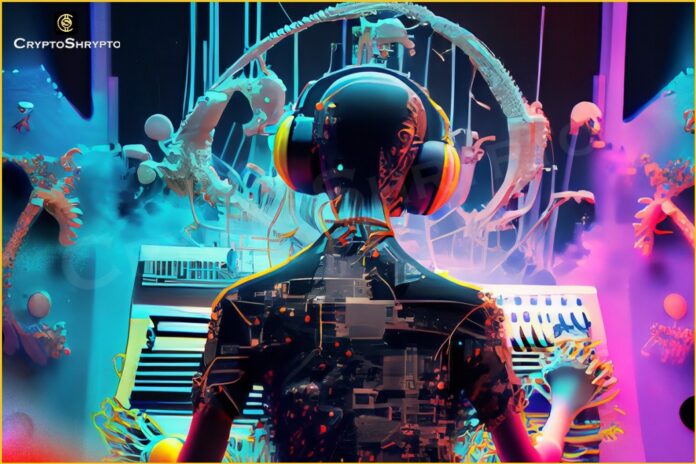The music industry is at a crossroads as it grapples with the integration of artificial intelligence (AI) into its creative processes. While AI has the potential to revolutionize music production and composition, artists remain divided, with 53% expressing concerns about how their audience might perceive music created with AI assistance, according to a recent survey conducted by the private music studio house Pirate. The survey gathered responses from 1,141 artists, including band members, singer-songwriters, producers, instrumentalists, and rappers from the United Kingdom, United States, and Germany.
The survey also revealed a general reluctance among artists to embrace AI technology, with only 25% having experience with AI tools in their creative process. Nevertheless, 46% of artists indicated a willingness to consider using AI in the future.
Christoph Krey of the band MYAI shared his experience, noting that they use AI for 30% of their activities while the remaining 70% is “art intelligence.” He highlighted the steep learning curve for artists and the additional tasks they must handle to create value.
David Borrie, the co-founder and CEO of Pirate, acknowledged artists’ hesitancy to use AI and concerns about authenticity. He drew a parallel to the early days of autotune and suggested that AI’s acceptance in music might follow a similar trajectory as artists and audiences adapt to the innovation.
Among artists who have integrated AI into their creative process, the most common use was in “songwriting and composition.” AI has been employed to enhance efficiency, provide songwriting prompts, generate rhyming schemes, and divide songs into stems for sampling.
Borrie emphasized the need to increase the visibility of artists using AI as a tool to dispel the stigma often associated with AI-generated music stunts featured in the media. The CEO of the Recording Academy, responsible for the Grammy Awards, has described AI as a “creative amplifier” when used by artists.
However, challenges remain. An artist’s attempt to submit a track featuring an AI-generated vocal track by rapper Drake for a Grammy nomination faced copyright infringement issues and was rejected by the Academy. The Academy’s official rules state that primary components of tracks up for nomination must be created by humans.
Major labels like Universal Music are also actively monitoring AI usage, partnering with companies like Google to combat AI deep fakes and urging streaming services like Spotify to remove AI-generated tracks from their platforms. The music industry is navigating the transformative potential of AI while addressing issues of authenticity, creativity, and copyright.




